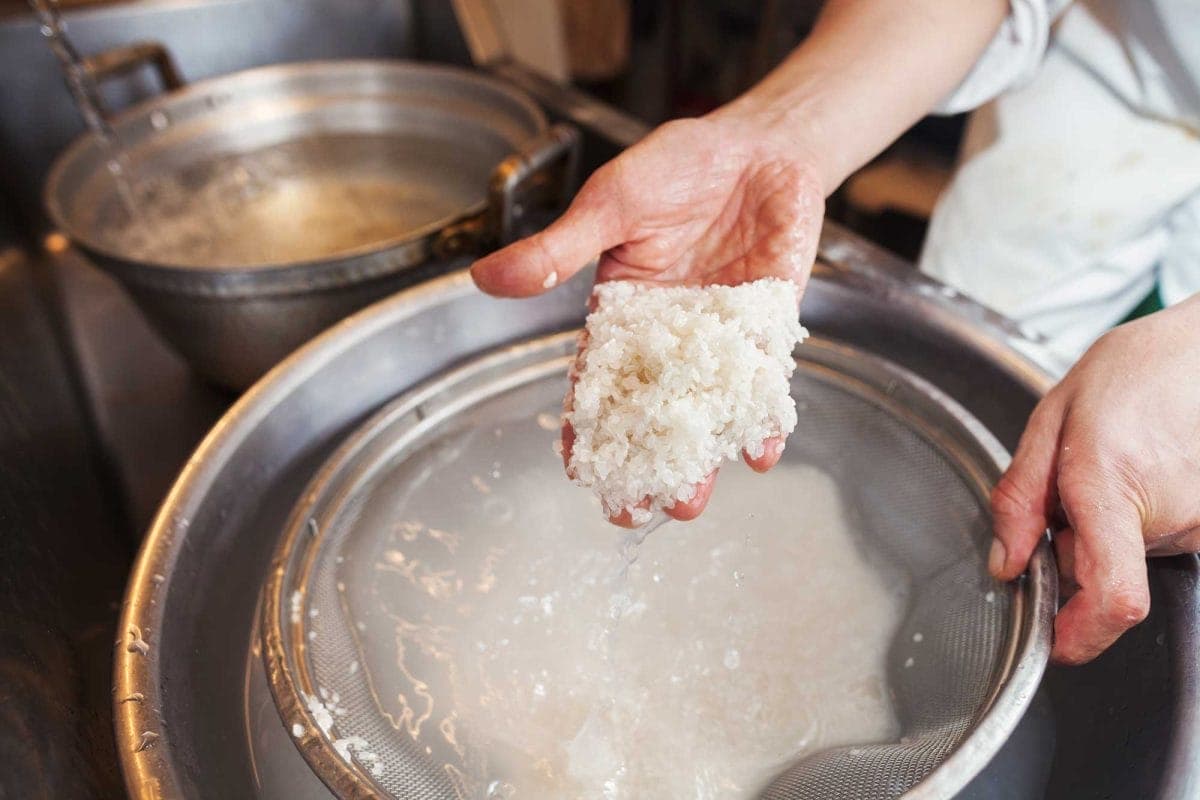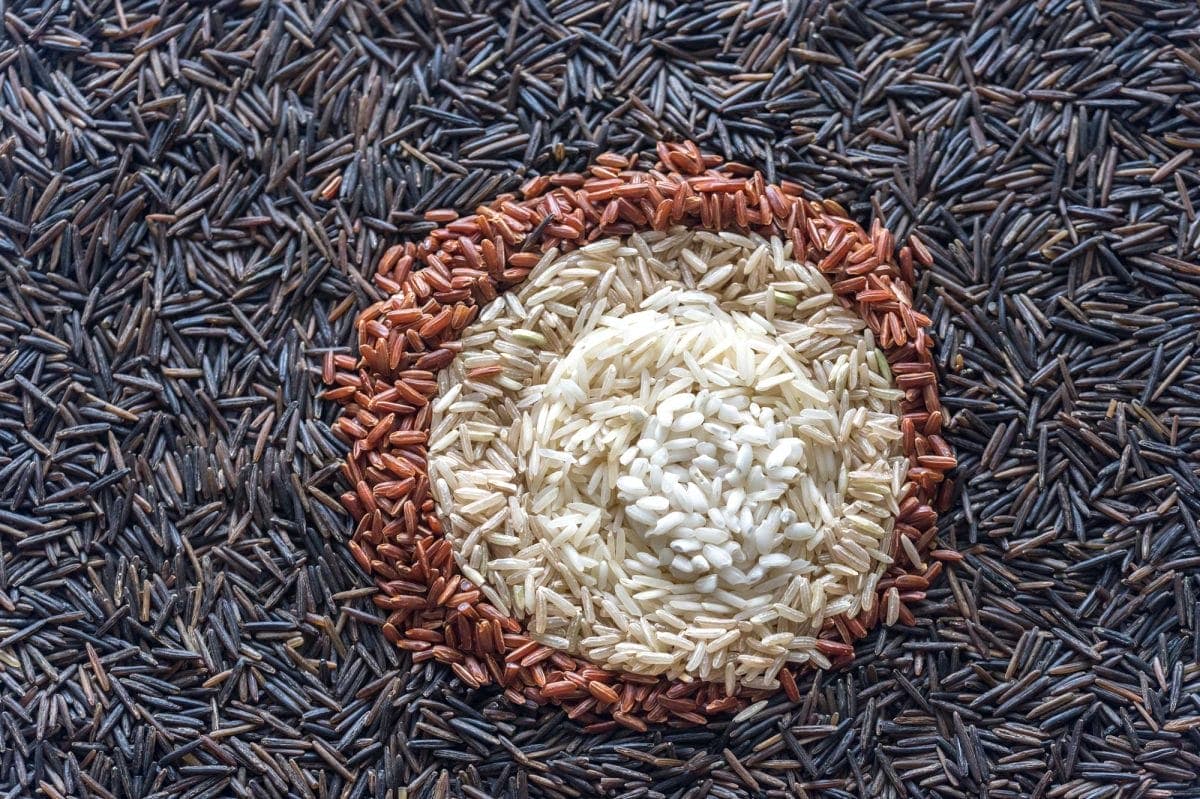For centuries, beauty secrets have passed through generations like sacred rituals. One such secret is rice water. Once used by imperial Japanese women known for their floor-length hair, and still revered in parts of China, Korea, and Southeast Asia, rice water is now making its way into modern skincare and haircare routines—with good reason. It’s simple, effective, and, best of all, backed by history and increasingly, by science.
What exactly is rice water? It’s the starchy liquid left after soaking or boiling rice. Nothing fancy. Yet inside that cloudy fluid lies a potent mix of vitamins, minerals, amino acids, and antioxidants. And its benefits? Honestly, they’re impressive.
You don’t need a luxury serum to improve skin clarity or expensive hair masks to boost shine. You might just need a bowl of rice.
Why Rice Water Is More Than a Trend
The beauty industry loves a comeback story, and rice water has had quite the resurgence. But this isn’t some fleeting TikTok hack. Historical records show that women during the Heian period in Japan (794 to 1185 AD) washed their hair in fermented rice water. Their hair, called kurokami (literally “black hair”), was famed for its strength and length.
Fast forward to today, modern-day Yao women in Huangluo, China—often referred to as the “long-hair village”—still use rice water to wash their hair. Many of them don’t see gray strands until their 80s. Coincidence? Maybe. But the correlation is too compelling to ignore.
With interest spiking globally, more people are turning to this simple, homemade remedy as a natural solution for smoother skin and stronger, shinier hair. It’s cheap, non-toxic, and adaptable to nearly any beauty routine.
A Nutrient Profile That Packs a Punch
So, what makes rice water so special? It contains a surprisingly robust combination of ingredients. These include:
- Amino acids: The building blocks of protein, essential for hair repair and skin cell regeneration.
- Vitamin E: A well-known antioxidant that supports skin barrier health and reduces inflammation.
- B vitamins: Especially niacin (B3), which is key for brightening skin and boosting circulation to the scalp.
- Ferulic acid: A powerful antioxidant that enhances the stability of other antioxidants and helps protect against UV damage.
- Inositol: A carbohydrate that remains even after rinsing and helps repair damaged hair over time.
Let’s break it down by use—hair first, then skin.

How Rice Water Supports Hair Growth and Strength
One of the biggest claims made about rice water is its ability to promote hair growth. While there’s limited peer-reviewed research specifically proving this, anecdotal evidence is overwhelming. And the ingredients suggest the hype isn’t just hot air.
Inositol, in particular, has attracted attention. It penetrates deep into the hair shaft and stays there, offering continuous protection even after rinsing. It repairs from the inside, reducing friction and increasing elasticity. The result? Less breakage, which indirectly leads to longer, healthier hair.
Rice water’s amino acids are also a big deal. Hair is made of keratin, a protein. When your hair is damaged—whether from heat, chemicals, or mechanical stress—it needs protein replenishment. Amino acids help restore this balance, reducing split ends and improving texture.
Regular use of rice water can lead to:
- Increased hair shine
- Reduced frizz
- Improved manageability
- Less breakage and split ends
- Fuller appearance over time
A 2010 study published in the International Journal of Cosmetic Science noted that friction and surface tension on hair were reduced with inositol application, which may help explain why hair appears smoother and shinier after consistent rice water use.
Scalp Health Matters Too
Rice water isn’t just for the strands—it’s also a scalp tonic. Its anti-inflammatory properties can calm irritation and reduce flakes. Fermentation enhances this effect, producing a lower pH and more antioxidant activity. This is especially helpful for those dealing with scalp issues like itchiness, seborrheic dermatitis, or even mild dandruff.
When massaged into the scalp, rice water stimulates blood flow, helping nutrients reach the follicles. It’s not a miracle growth serum, but a healthier scalp always means a better environment for hair to thrive.
Brightening, Tightening, and Soothing Skin with Rice Water
On the skin, rice water has a reputation for clarity, smoothness, and tone. And it’s not just folklore—there’s scientific interest behind its claims.
A 2013 study in The Journal of Cosmetic Chemists found that rice starch baths were effective in improving the healing of atopic dermatitis. Participants who bathed in rice starch saw a 20% improvement in skin barrier function compared to those who didn’t.
Another 2018 study in Pharmacognosy Magazine confirmed rice water’s antioxidant capacity, suggesting it could protect the skin from oxidative stress and aging.
What does that mean for your face?
Rice water may help:
- Brighten dull skin
- Even out tone and reduce the appearance of dark spots
- Minimize the look of pores
- Calm redness or inflammation
- Smooth fine lines over time
It also contains compounds that inhibit tyrosinase, the enzyme responsible for melanin production. That’s a major reason many people use rice water as a gentle treatment for hyperpigmentation or sunspots.
And because it’s so gentle, even those with sensitive or acne-prone skin can benefit. It’s soothing without being heavy or greasy.

Fermented vs. Plain Rice Water: What’s the Difference?
If you start researching rice water, you’ll quickly come across two camps: those who use it fresh, and those who swear by the fermented version.
Fermented rice water has a slightly sour smell (due to natural fermentation), but it’s more potent. As rice ferments, it produces pitera, a natural substance rich in amino acids, organic acids, vitamins, and minerals. Some credit pitera with the skin-refining properties of high-end products like SK-II, which is built around this very ingredient.
The lower pH of fermented rice water is also closer to that of our skin, making it more compatible and less likely to cause imbalance. On hair, it can help restore shine and bounce faster, especially if your hair tends to feel brittle or dry.
But both types have value. Plain rice water is quick and easy to make, perfect for beginners or those who prefer a milder treatment.
How to Make Rice Water at Home
There are a few different methods, but the most effective are soaking and fermenting.
For soaking, rinse ½ cup of uncooked rice thoroughly, then place it in a bowl with 2–3 cups of water. Let it sit for 30 minutes to an hour. Strain and collect the water—that’s your rice water.
For fermentation, take the soaked rice water and let it sit at room temperature in a sealed jar for 24–48 hours. The longer it ferments, the stronger it becomes. Once it smells slightly sour, it’s ready. Refrigerate and use within 5–7 days.
Pro tip: Always dilute fermented rice water before applying it to skin or hair, especially the first time. A 1:3 ratio of rice water to regular water is a safe place to start.
Integrating Rice Water into Your Routine
On hair, use rice water as a rinse after shampooing. Let it sit for 5–10 minutes, then rinse it out with plain water. Some leave it in as a light treatment, but that depends on hair type—coarse or dry hair may benefit more than fine, easily weighed-down strands.
On skin, you can use rice water as a toner after cleansing. Apply with a cotton pad or spritz with a mist bottle. It can also be added to masks or used in DIY sheet masks by soaking compressed cotton masks in the solution.
Start with once or twice a week. Too much can be drying, especially if you don’t moisturize afterward.
FAQs
Can rice water cause any side effects?
It’s rare, but yes—some people may experience dryness or protein overload on their hair if they use it too often, especially those with low-porosity or very fine hair. On the skin, patch testing is always a good idea before full application.
How long does rice water last?
Fresh rice water should be used within 3–5 days if refrigerated. Fermented rice water can last about a week in the fridge. Always discard it if it smells off or grows mold.
Can I use rice water every day?
For hair, no—2–3 times per week is more than enough. For skin, once daily is usually fine, especially if diluted and followed by a moisturizer.
Does the type of rice matter?
Brown rice, white rice, jasmine, basmati—all can work. But organic white rice is often preferred because it ferments quickly and has fewer outer layers, reducing the risk of irritation for sensitive skin.
Can rice water replace conditioner or serum?
Not exactly. Rice water is a supplement to your routine, not a complete replacement. It’s excellent for repair and maintenance but lacks the emollients of conditioners or the occlusive properties of serums.
This Simple Remedy Is Worth Trying
There’s something deeply satisfying about going back to basics—especially when it works. Rice water isn’t flashy, but it delivers real results over time. Whether your hair feels weak, your skin looks dull, or you’re simply curious to try something natural, rice water offers an accessible, low-risk addition to your beauty toolkit.
And it’s more than just a trend. It’s a time-tested technique, passed from one generation to the next, now making its quiet mark in the modern world. There’s power in that simplicity.
You don’t need to overhaul your routine. Just add a little rice water. Let it work its magic.




